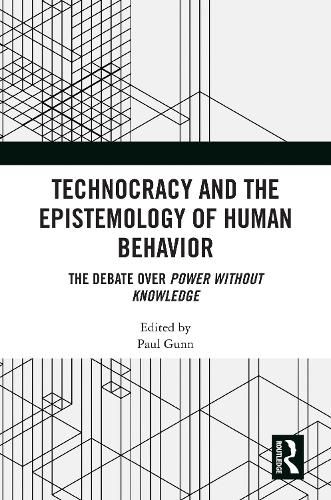Readings Newsletter
Become a Readings Member to make your shopping experience even easier.
Sign in or sign up for free!
You’re not far away from qualifying for FREE standard shipping within Australia
You’ve qualified for FREE standard shipping within Australia
The cart is loading…






In Power Without Knowledge: A Critique of Technocracy (2019), Jeffrey Friedman presented a sweeping reinterpretation of modern politics and government as technocratic, even in many of its democratic dimensions. Building on a new definition of technocracy as governance aimed at solving social and economic problems, Friedman showed that the epistemic demands that such governance places on political elites and ordinary people alike may be overwhelming if technocrats fail to attend to the ideational heterogeneity of the human beings whose control is the object of technocratic power. Yet a recognition of ideational heterogeneity considerably complicates the task of predicting behavior, which is essential to technocratic control-as Friedman demonstrated with pathbreaking critiques of the homogenizing strategies of neoclassical economics, positivist social science, behavioral economics, and populist democratic politics.
In Technocracy and the Epistemology of Human Behavior, thirteen political theorists, including Friedman himself, debate the implications of Power Without Knowledge for social science, modern governance, the politics of expertise, post-structuralism, anarchism, and democratic theory; and Friedman responds to his critics with an expansive defense of his vision of contemporary politics and his political epistemology of ideationally diverse human beings.
This book was originally published as a special issue of the Critical Review.
$9.00 standard shipping within Australia
FREE standard shipping within Australia for orders over $100.00
Express & International shipping calculated at checkout
In Power Without Knowledge: A Critique of Technocracy (2019), Jeffrey Friedman presented a sweeping reinterpretation of modern politics and government as technocratic, even in many of its democratic dimensions. Building on a new definition of technocracy as governance aimed at solving social and economic problems, Friedman showed that the epistemic demands that such governance places on political elites and ordinary people alike may be overwhelming if technocrats fail to attend to the ideational heterogeneity of the human beings whose control is the object of technocratic power. Yet a recognition of ideational heterogeneity considerably complicates the task of predicting behavior, which is essential to technocratic control-as Friedman demonstrated with pathbreaking critiques of the homogenizing strategies of neoclassical economics, positivist social science, behavioral economics, and populist democratic politics.
In Technocracy and the Epistemology of Human Behavior, thirteen political theorists, including Friedman himself, debate the implications of Power Without Knowledge for social science, modern governance, the politics of expertise, post-structuralism, anarchism, and democratic theory; and Friedman responds to his critics with an expansive defense of his vision of contemporary politics and his political epistemology of ideationally diverse human beings.
This book was originally published as a special issue of the Critical Review.